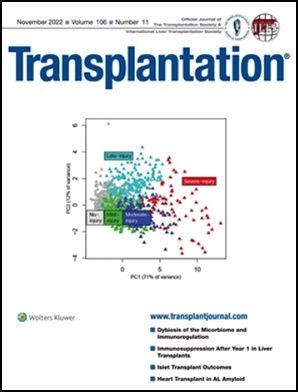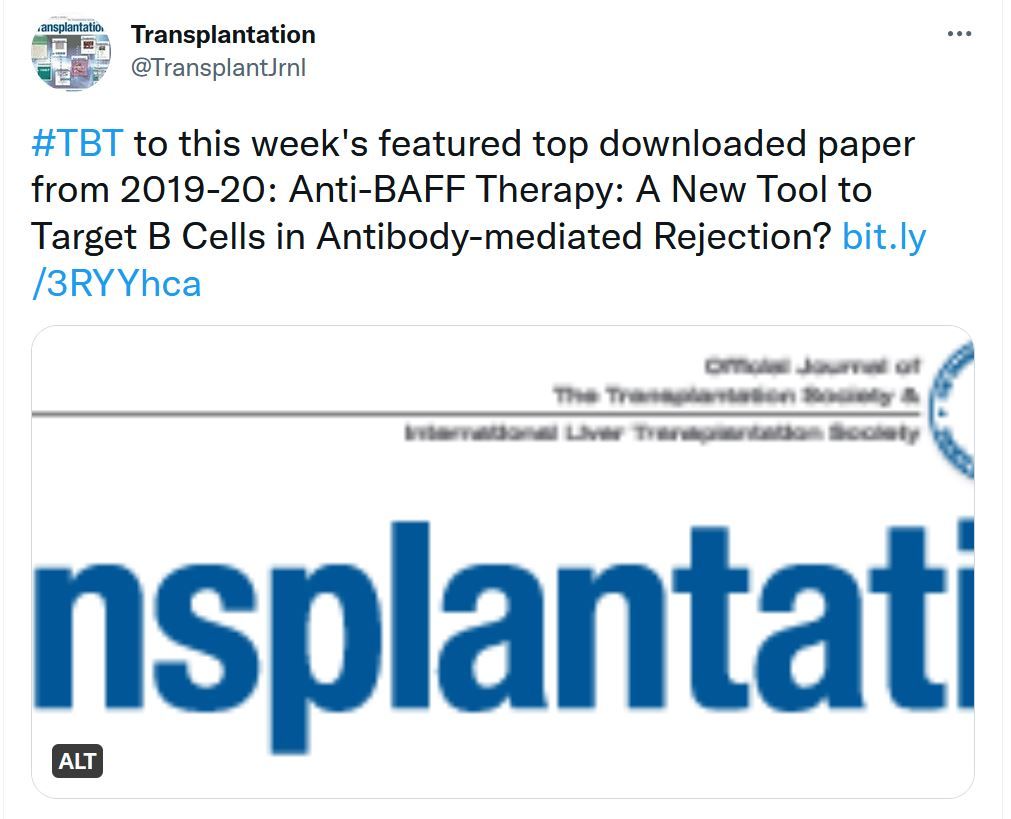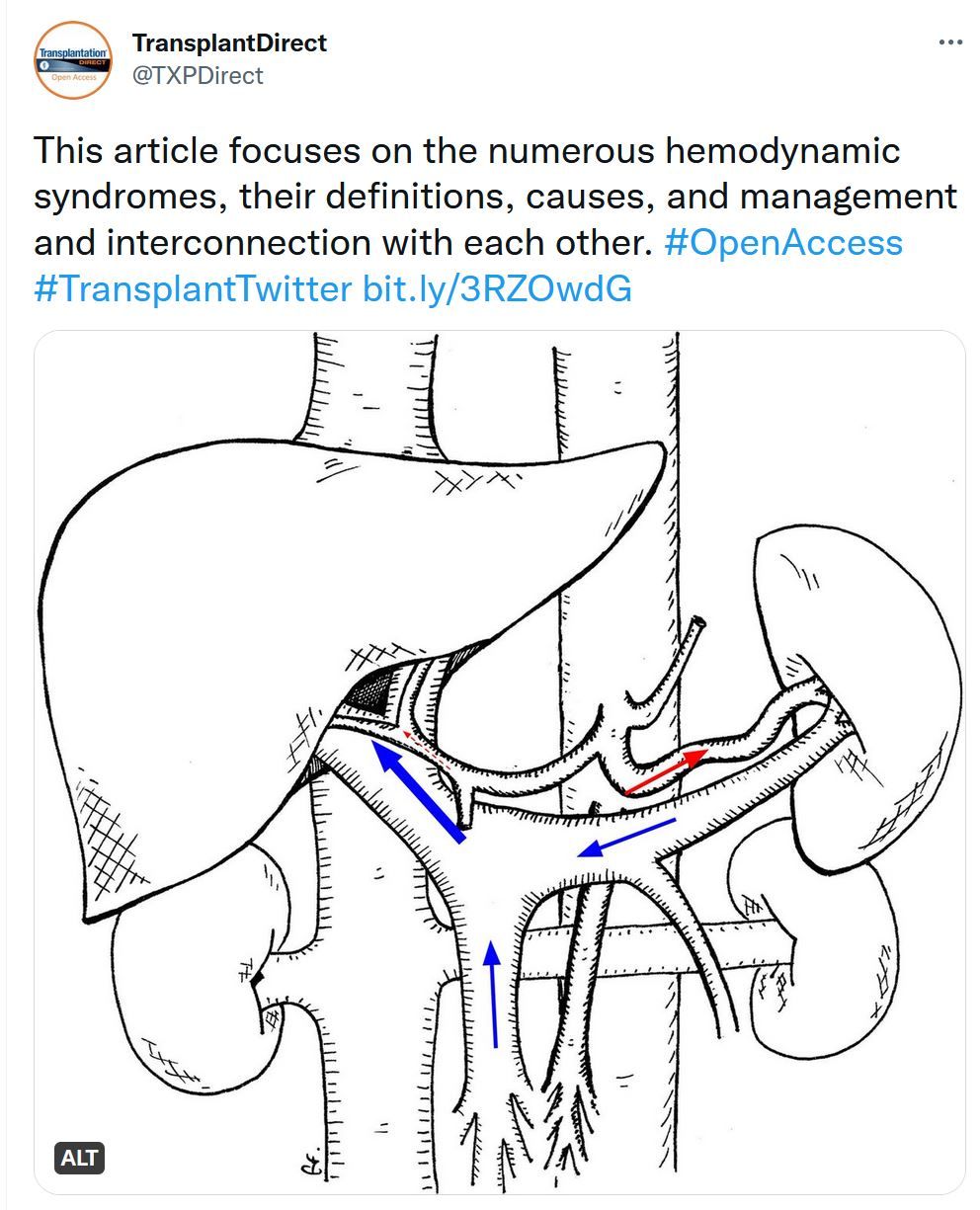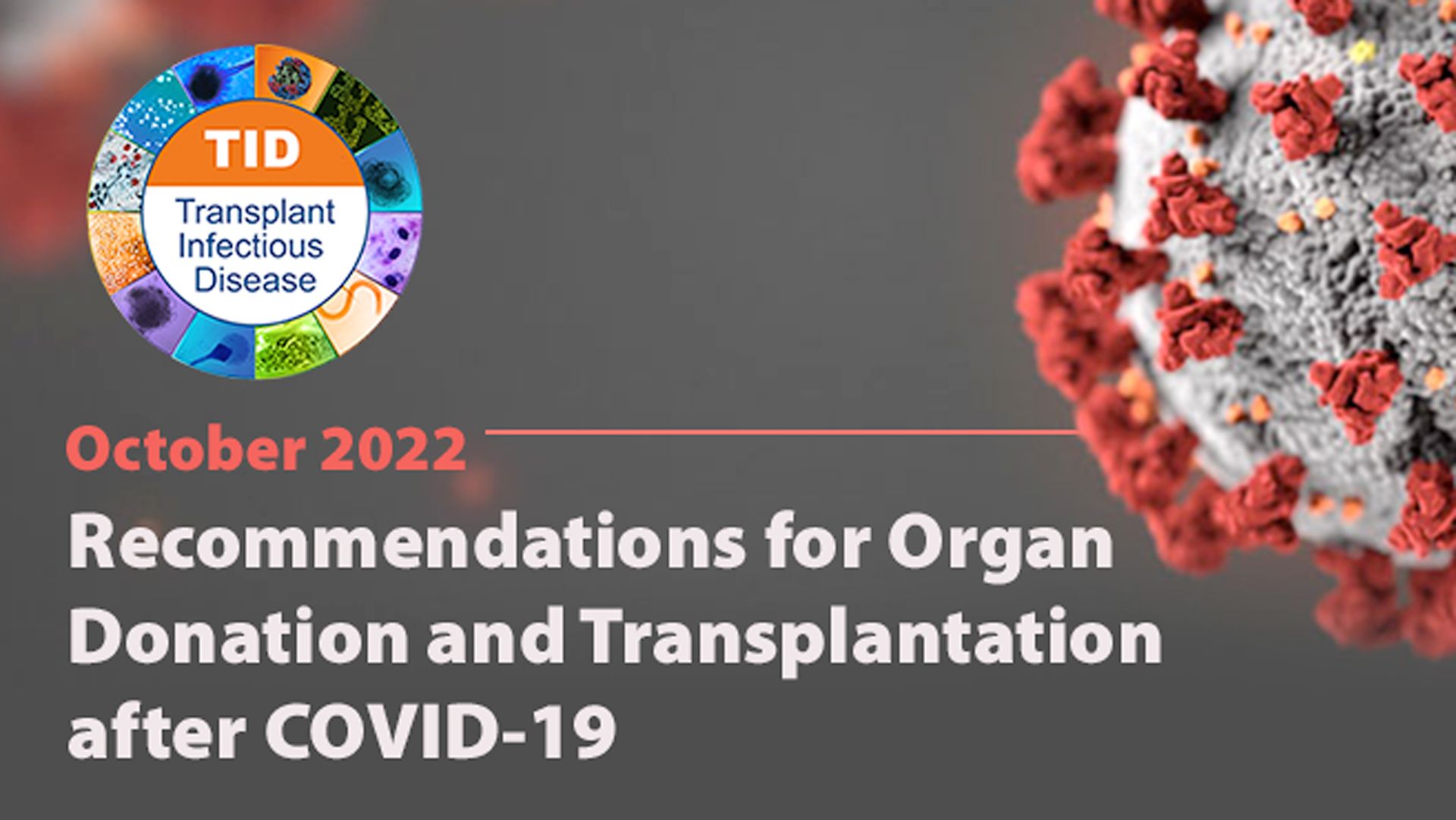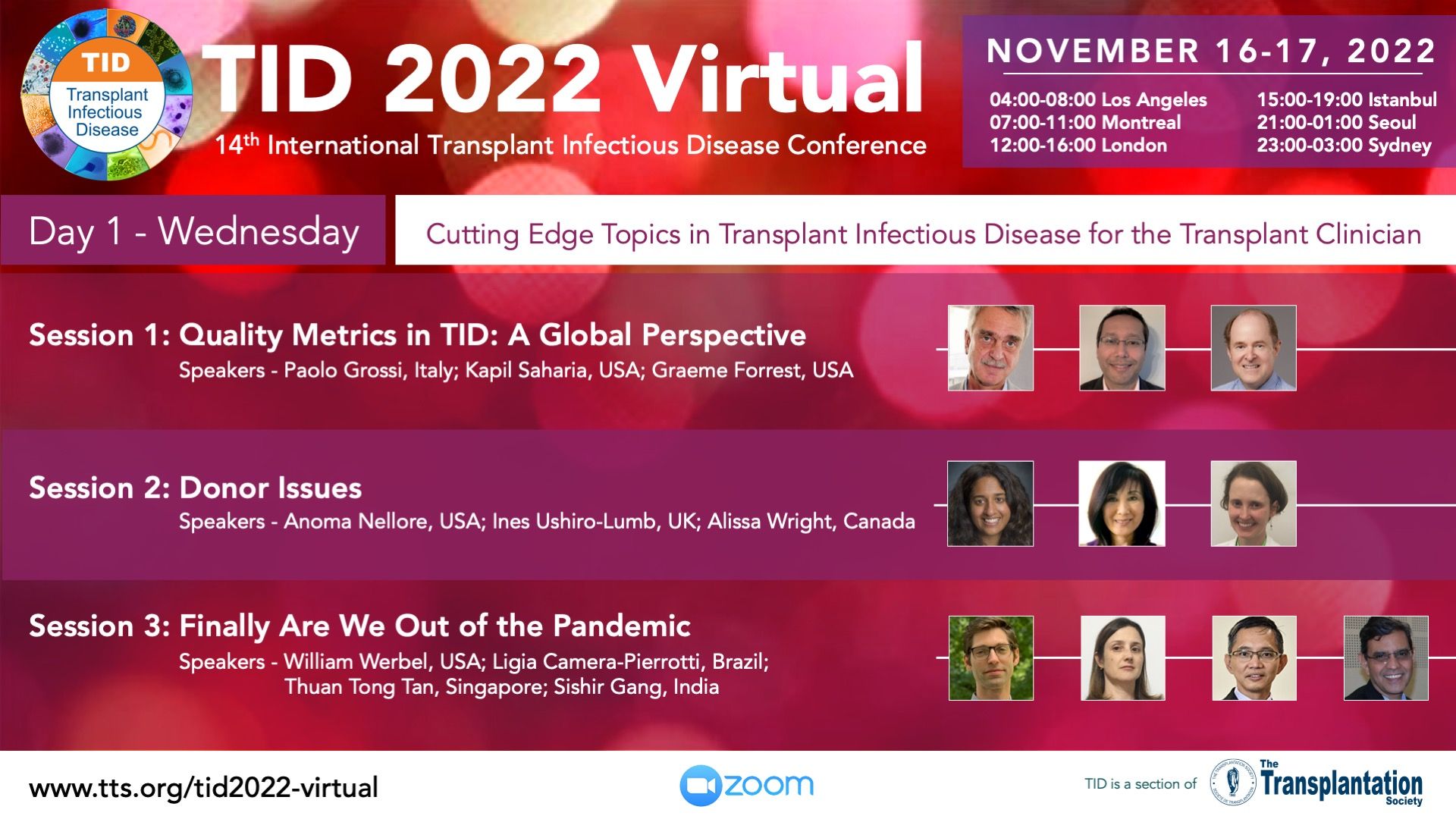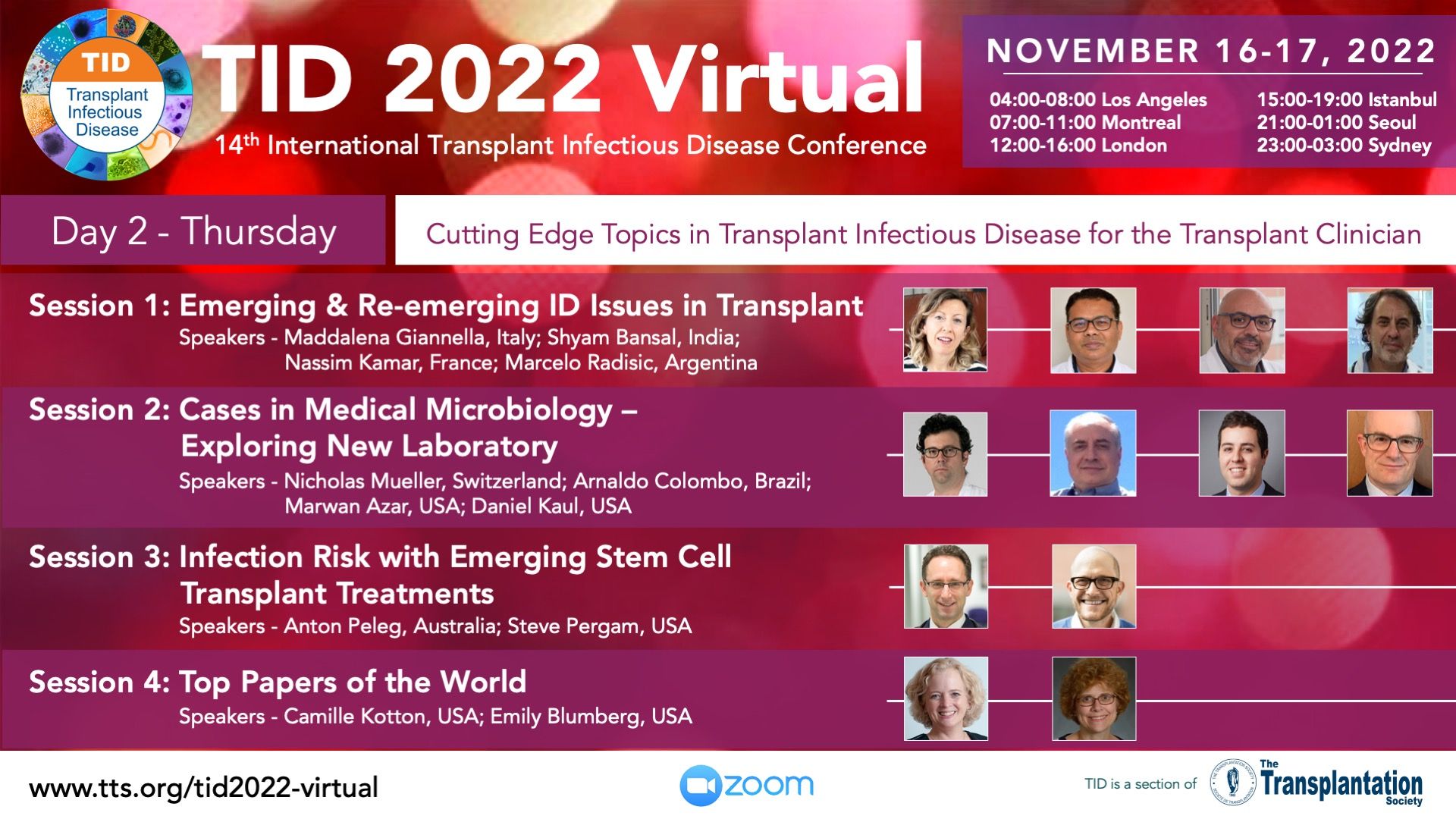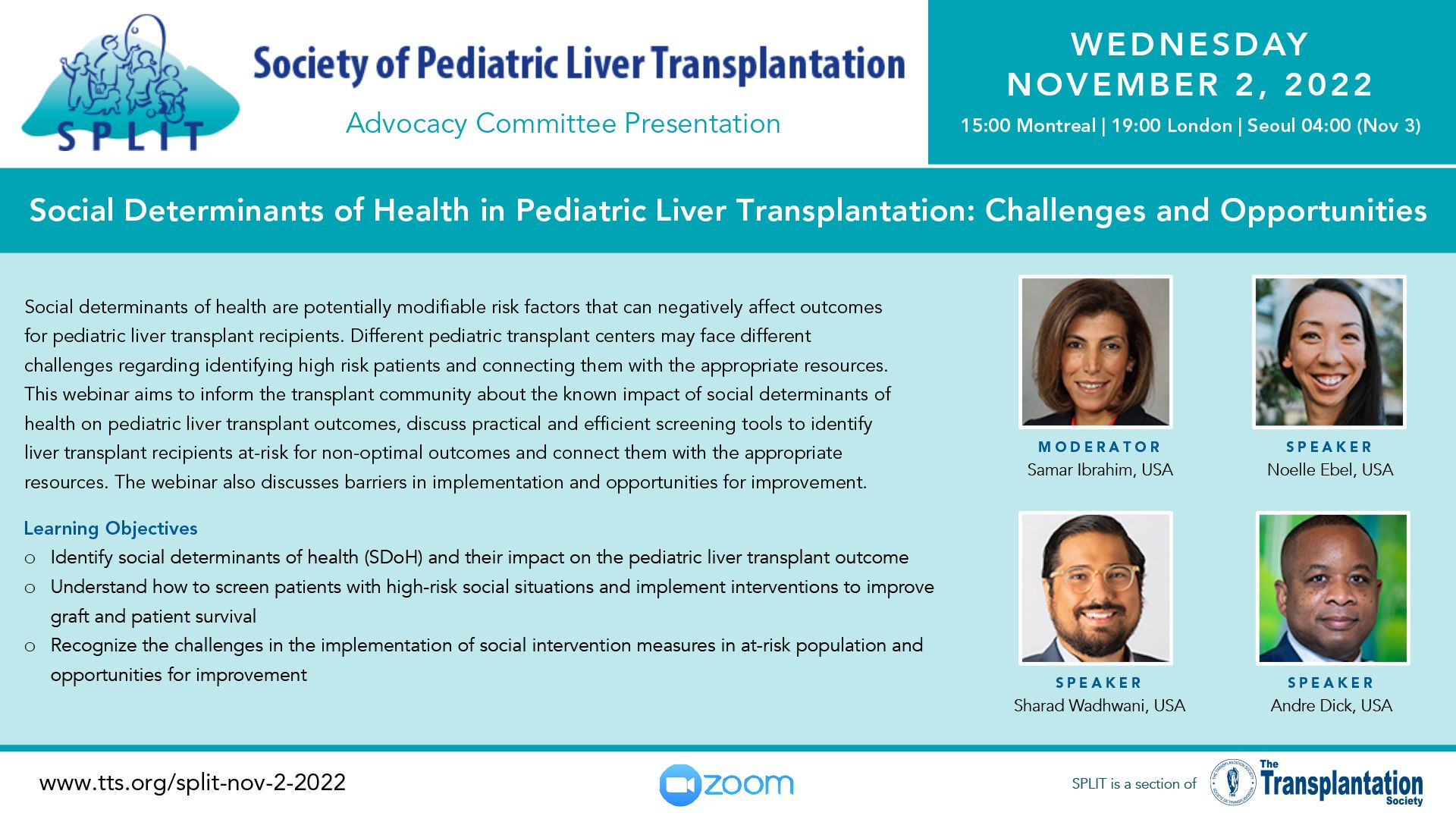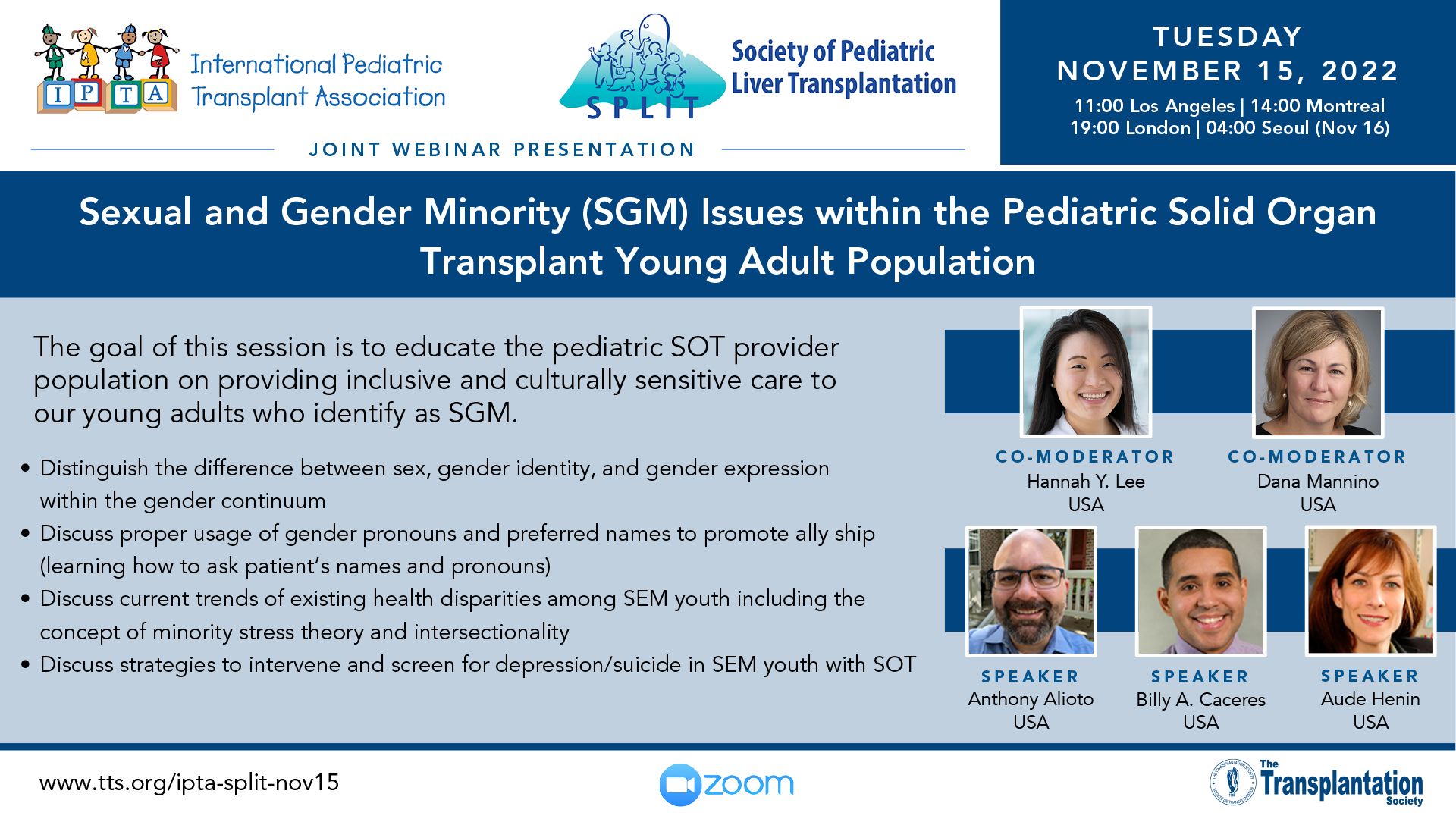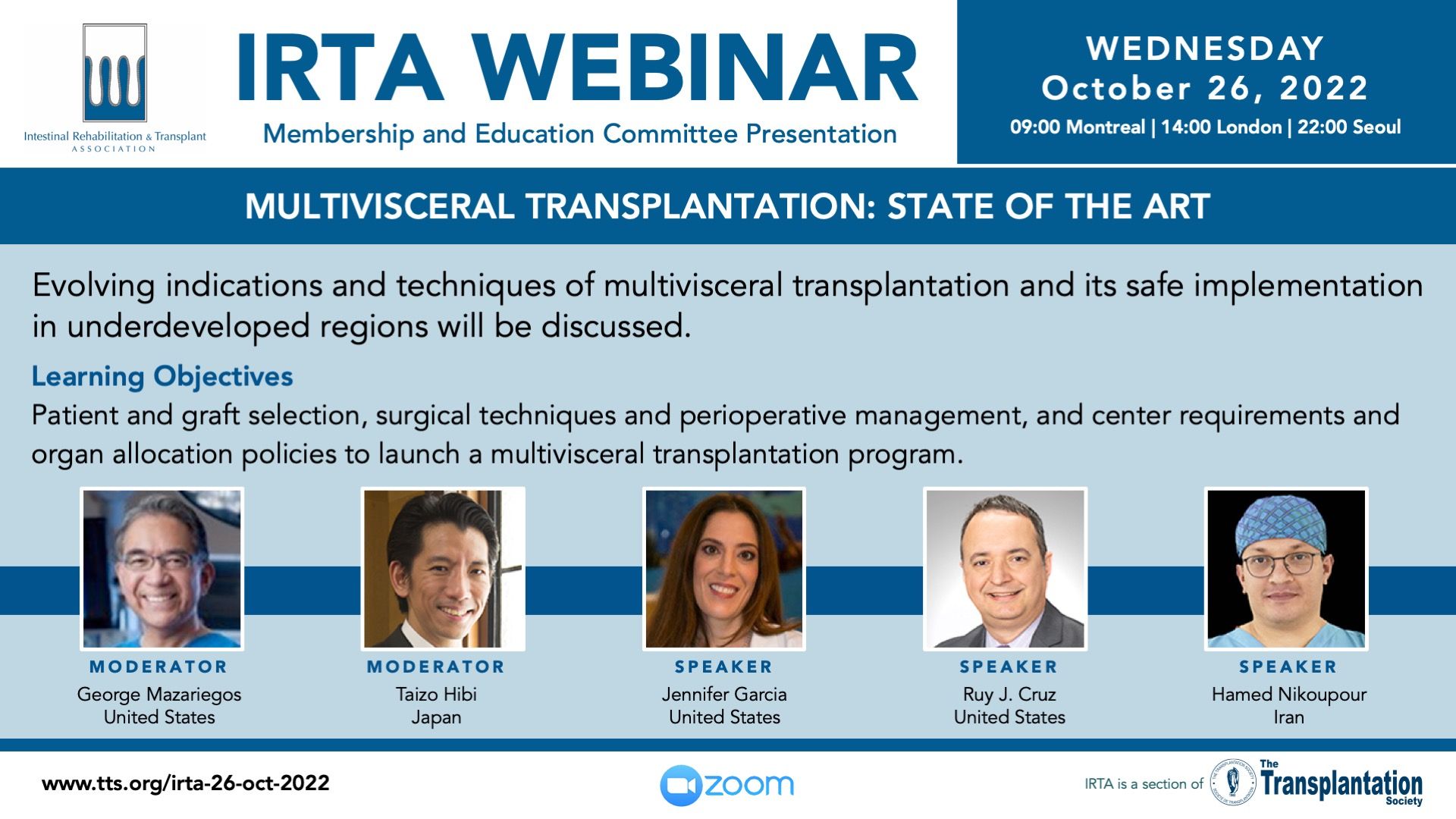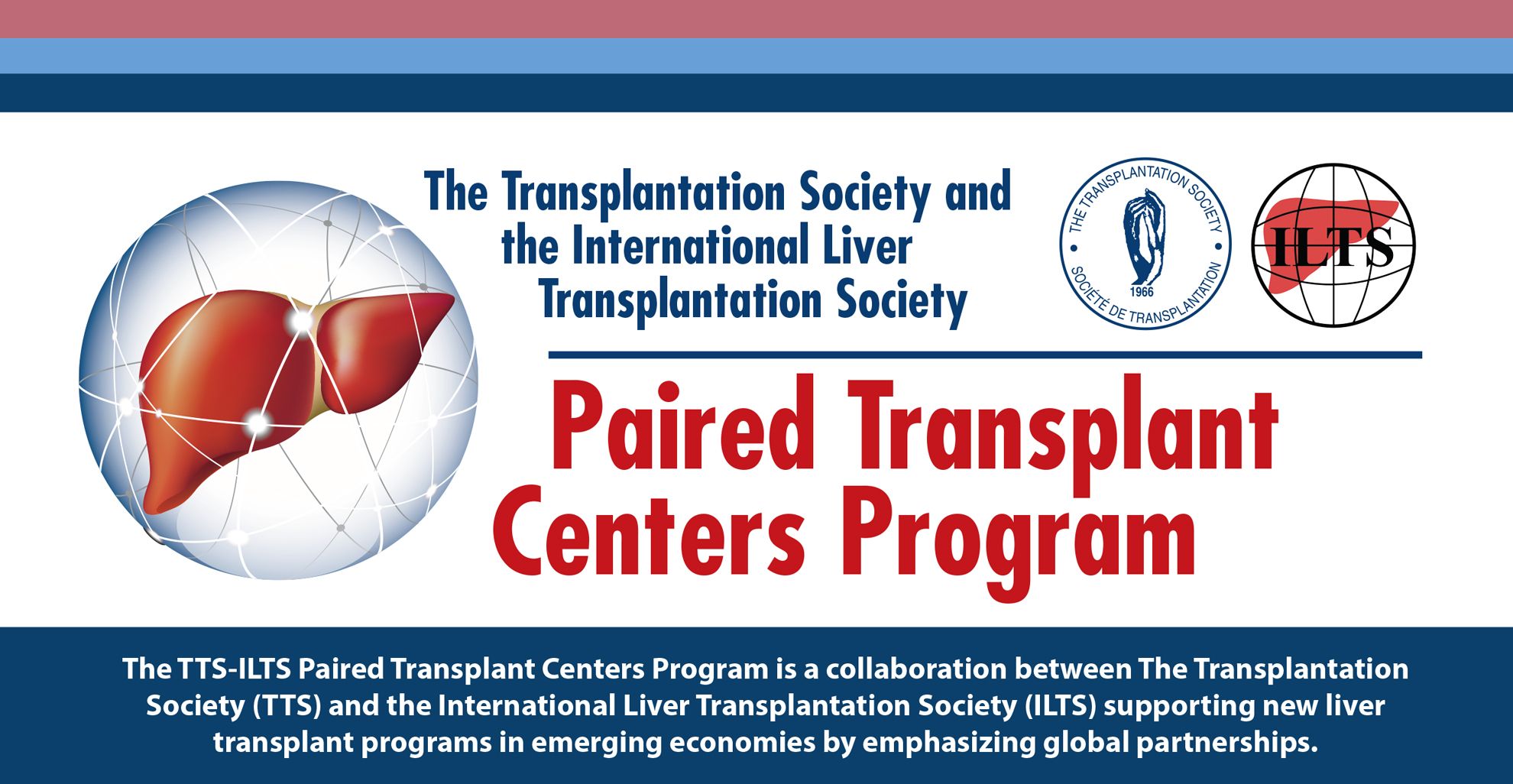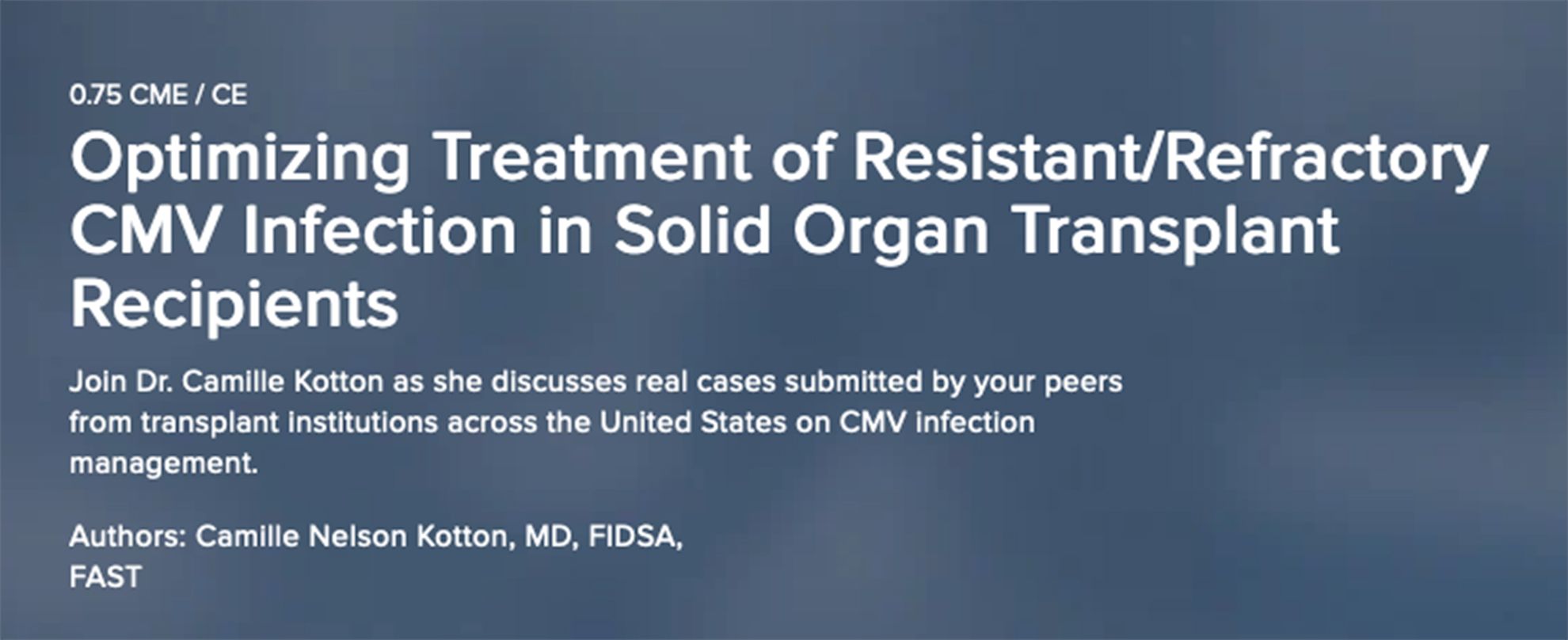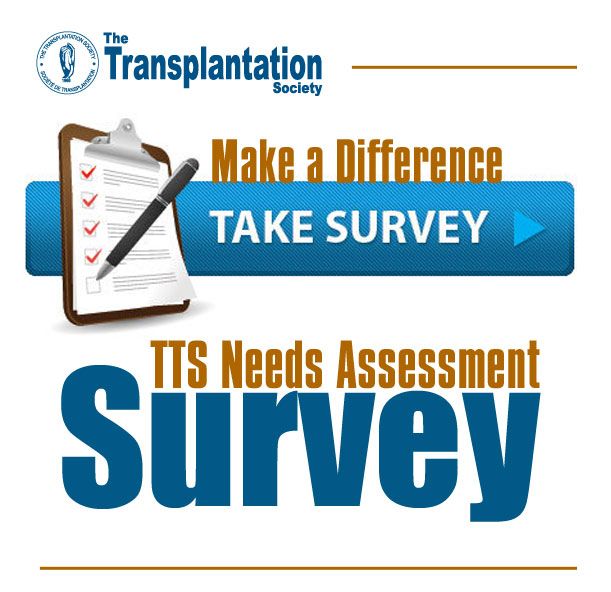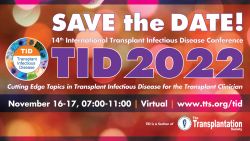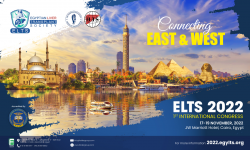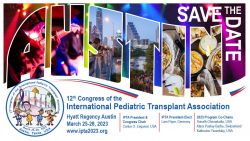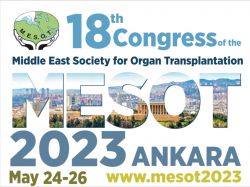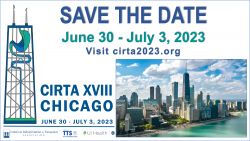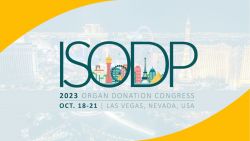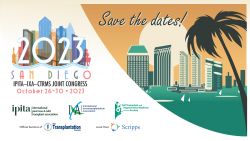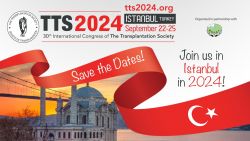
Transplantation Updates

Just Released - Transplantation - November 2022 Issue
Around the World
Research Highlights
Game Changer
People in Transplantation
Expert Insight
- Finding the Road to Rome in Cardiac Allograft Vasculopathy Imaging Surveillance
- Social Media in Transplantation: An Opportunity for Outreach, Research Promotion, and Enhancing Workforce Diversity
Meeting Report
Commentaries
- Increasing Living Liver Donor Pools: Liver Paired Exchange Versus ABO-incompatible Living Donor Liver Transplantation
- A New Look at an Old Problem: Is Single Lung Transplantation an Option in Candidates With Significant Secondary Pulmonary Hypertension?
Reviews
- Are MELD and MELDNa Still Reliable Tools to Predict Mortality on the Liver Transplant Waiting List?
- Challenges and Opportunities in the Supply of Living Kidney Donation in the UK National Health Service: An Economic Perspective
- A Review of Direct-acting Oral Anticoagulants and Their Use in Solid Organ Transplantation
Original Basic Science
- Dysbiosis of the Female Murine Gut Microbiome Exacerbates Neutrophil-mediated Vascular Allograft Injury by Affecting Immunoregulation by Acetate
- The Selective Estrogen Receptor Modulator, Raloxifene, Is Protective Against Renal Ischemia–reperfusion Injury
- Activation of the Aryl Hydrocarbon Receptor Ameliorates Acute Rejection of Rat Liver Transplantation by Regulating Treg Proliferation and PD-1 Expression
Original Clinical Science—Liver
- Time-varying Comparison of All-cause Mortality After Liver Transplantation Between Recipients With and Without Hepatocellular Carcinoma: A Population-based Cohort Study Using the United Kingdom Liver Transplant Registry
- Recipient and Center Factors Associated With Immunosuppression Practice Beyond the First Year After Liver Transplantation and Impact on Outcomes
- Paired Exchange Living Donor Liver Transplantation: A Nine-year Experience From North India
Original Clinical Science—General
- Clinical Effectiveness of SARS-CoV-2 Vaccination in Renal Transplant Recipients. Antibody Levels Impact in Pneumonia and Death
- Trends, Social Context, and Transplant Implications of Obesity Among Incident Dialysis Patients in the United States
- Preliminary Clinical Experience of Molnupiravir to Prevent Progression of COVID-19 in Kidney Transplant Recipients
- Assessing the Relationship Between Molecular Rejection and Parenchymal Injury in Heart Transplant Biopsies
- Survival Benefit in Older Patients Transplanted With Viremic Hepatitis C Positive Kidneys When Compared With High KDPI Kidneys
- Secondary Prophylaxis With Inhaled Colistin to Prevent Recurrence of Pseudomonas aeruginosa and Extended-spectrum β-lactamase-producing Enterobacterales Pneumonia in ICU After Lung Transplantation: A Before-and-after Retrospective Cohort Analysis
- Single Lung Transplant Remains a Viable Option for Patients With Severe Secondary Pulmonary Hypertension
- New-onset Obesity After Lung Transplantation: Incidence, Risk Factors, and Clinical Outcomes
- Clinical Outcomes and Effectiveness of Heart Transplantation in Patients With Systemic Light-chain Cardiac Amyloidosis
Letters to the Editor
- Perfusate Enzymes and Platelets Indicate Early Allograft Dysfunction After Transplantation of Normothermically Preserved Livers
- Clinical Characteristics and Outcomes of Kidney Transplant Recipients With SARS-CoV-2 Reinfections
- Increased Rates of Kidney Discard in the Era of COVID-19 and Recent KAS Policy Implementation
- Outcomes of Solid Organ Transplant Recipients Treated With Antispike Monoclonal Antibodies for Coronavirus Disease 2019 Across Variant Epochs: Impact of Comorbidities and Vaccination
- Renal Complications in Kidney Transplant Recipients After Whole-virus Inactivated COVID-19 Vaccination
- Monkeypox in Transplant Recipients: No Breaks Between Outbreaks
Erratum
Transplantation - Week's Most Downloaded Paper
Anti-BAFF Therapy: A New Tool to Target B Cells in Antibody-mediated Rejection?
Maintaining long-term renal allograft survival remains a major challenge in kidney transplantation. Chronic active antibody-mediated rejection (AMR) accounts for the majority of late renal allograft failures. In AMR, B cells both generate donor-specific antibody (DSA) as well as present antigen, produce cytokines, and promote allograft injury. The efficacy of therapeutics commonly used to treat AMR demonstrate mixed results in clinical practice. Thus, clinicians and researchers have an interest to better understand the role of B cells in AMR and to identify effective targeted therapeutics.Transplantation Direct - Highlighted Tweet
Understanding Local Hemodynamic Changes After Liver Transplant: Different Entities or Simply Different Sides to the Same Coin?
Liver transplantation is an extremely complex procedure performed in an extremely complex patient. With a successful technique and acceptable long-term survival, a new challenge arose: overcoming donor shortage. Thus, living donor liver transplant and other techniques were developed. Aiming for donor safety, many liver transplant units attempted to push the viable limits in terms of size, retrieving smaller and smaller grafts for adult recipients. With these smaller grafts came numerous problems, concepts, and definitions. The spotlight is now aimed at the mirage of hemodynamic changes derived from the recipients prior alterations. This article focuses on the numerous hemodynamic syndromes, their definitions, causes, and management and interconnection with each other. The aim is to aid the physician in their recognition and treatment to improve liver transplantation success.TID COVID-19 Guideance - October 2022
TID 2022 Virtual - 14th International Transplant Infectious Disease Conference
Upcoming Webinars
In Case You Missed It - Recent Webinar Presentation
TTS-ILTS Paired Transplant Centers Program - Apply Today!
TTS-RMEI Partnership CME Activity
CMV is one of the most common opportunistic infections affecting solid organ transplant recipients (SOTRs), conveying higher risks of complications, graft loss, morbidity, and mortality. Treatment options for CMV are limited, have similar mechanisms of action, suffer from cross-resistance, and have serious toxicities. Until recently, no treatment option was available in the resistant/refractory setting. This workshop, developed in collaboration with The Transplantation Society (TTS) and Dr. Camille Kotton, MD, FIDSA, FAST, will take you through a CMV primer and then move on to discuss cases submitted by your peers from transplant centers across the United States.
Upon completion of this activity, participants should be better able to:- Employ evidence-based antiviral treatment strategies for cytomegalovirus (CMV) in solid organ transplant (SOT) patients
- Utilize antiviral resistance testing to identify SOT patients with treatment refractory or drug resistant CMV
- Implement new treatment strategies in the management of resistant or refractory CMV in SOT patients
CME:
Physicians - maximum of 0.75 AMA PRA Category 1 Credit(s)™
Nurses - 0.75 ANCC Contact Hour(s) (0 contact hours are in the area of pharmacology)
Pharmacists - 0.75 Knowledge-based ACPE (0.075 CEUs)- CME / CE Released: 9/15/2022 Valid for credit through: 9/14/2023
TTS Needs Assessment Survey - last chance to submit!
Contact
Address
The Transplantation Society
International Headquarters
740 Notre-Dame Ouest
Suite 1245
Montréal, QC, H3C 3X6
Canada
Используйте Вавада казино для игры с бонусом — активируйте промокод и начните выигрывать уже сегодня!

